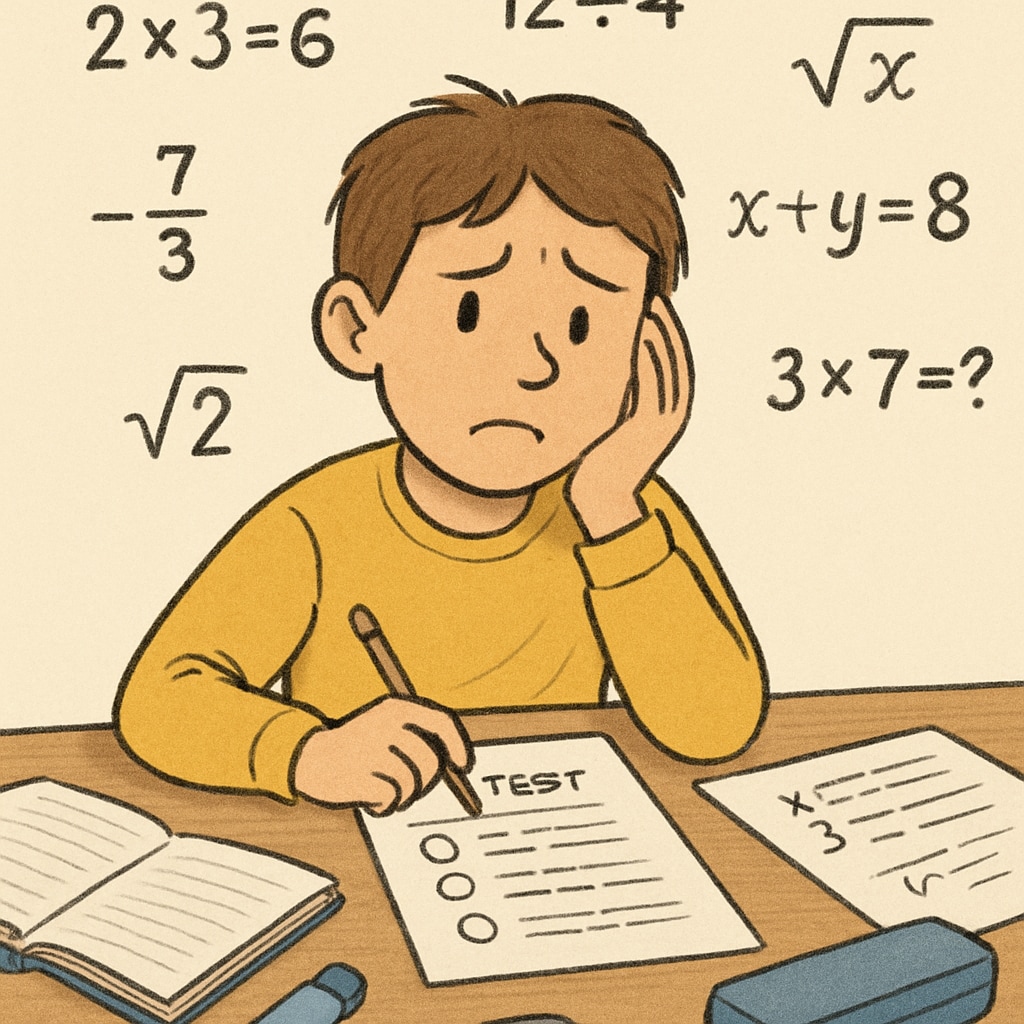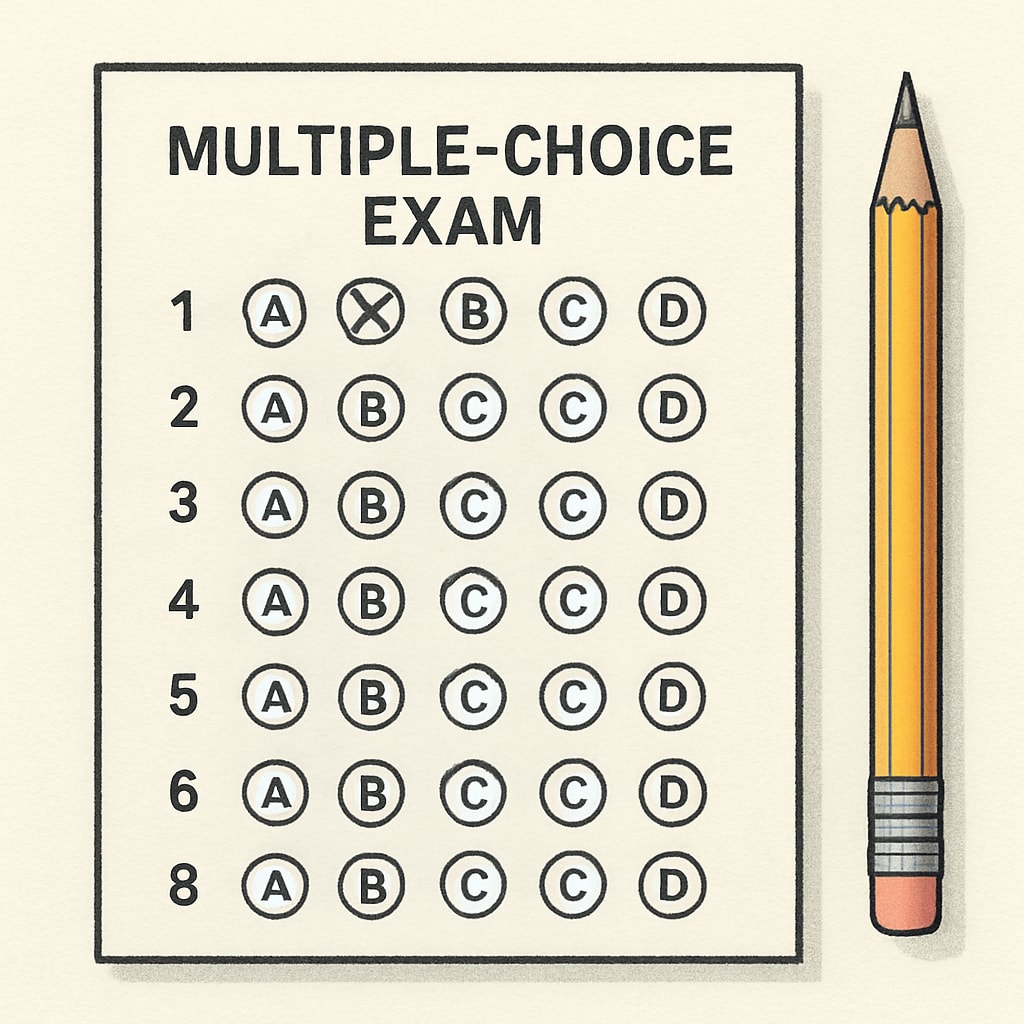Math exam anxiety, a common challenge among K12 students, can significantly affect academic performance, particularly in multiple-choice questions. This type of anxiety not only undermines confidence but also leads to poor time management and rushed decisions. In this article, we will explore the root causes of math anxiety, its impact on exam performance, and actionable strategies to help students overcome it and achieve their full potential.
Understanding the Roots of Math Exam Anxiety
Math anxiety is more than just a dislike for numbers; it’s an emotional response that triggers stress and fear when dealing with math-related tasks. According to research, this anxiety often stems from negative past experiences, such as poor grades or criticism from teachers or parents. Additionally, societal stereotypes, like the belief that math is inherently difficult, can exacerbate this fear.
One of the most concerning effects of math anxiety is its impact on cognitive performance. When students feel anxious, their working memory—a critical resource for solving problems—is compromised. As a result, even well-prepared students may struggle to focus or recall key concepts during the exam.

The Specific Impact on Multiple-Choice Questions
Multiple-choice questions (MCQs) are a staple of standardized testing, yet they pose unique challenges for students with math anxiety. Unlike open-ended problems, MCQs often require quick decision-making and careful elimination of incorrect options. Anxiety can impair these skills, leading to hurried guesses or skipped questions.
Furthermore, the pressure to select the “correct answer” from a set of options can intensify feelings of self-doubt. Students may second-guess themselves, even when their initial choice was correct. This phenomenon, known as “answer changing bias,” is particularly prevalent among anxious test-takers.
For example, a student might accurately solve a problem but change their answer at the last moment due to insecurity. These patterns highlight the need for targeted strategies to help students manage stress and approach MCQs with confidence.

Practical Strategies to Overcome Math Anxiety
While math anxiety may feel overwhelming, students can use the following strategies to reduce stress and improve their performance:
- Mindfulness Techniques: Practices such as deep breathing or short meditation sessions can help calm nerves before and during exams.
- Positive Reinforcement: Encourage students to celebrate small victories, like solving a challenging problem, to build their confidence over time.
- Practice Under Pressure: Simulating test conditions during study sessions can help students acclimate to the time constraints and question formats of real exams.
- Reframing Negative Thoughts: Replace self-defeating beliefs like “I’m bad at math” with constructive affirmations such as “I can improve with practice.”
- Elimination Strategies: Teach students to systematically rule out incorrect answers in MCQs, which reduces guesswork and increases accuracy.
In addition to these techniques, parental and teacher support plays a vital role. Creating a positive, non-judgmental learning environment encourages students to take risks without fear of failure.
Long-Term Benefits of Overcoming Math Anxiety
Reducing math anxiety not only improves exam performance but also fosters a lifelong appreciation for mathematics. Students who develop confidence in their math abilities are more likely to pursue STEM (Science, Technology, Engineering, and Mathematics) fields, opening doors to a wide range of career opportunities.
Moreover, the skills students gain while managing anxiety—such as mindfulness, problem-solving, and resilience—are transferable to other academic subjects and life challenges. As a result, overcoming math anxiety equips students with tools for success both inside and outside the classroom.
For further insights into math education and anxiety management, check out resources like the Math Anxiety page on Wikipedia and the Britannica article on Math Anxiety.
In conclusion, while math exam anxiety can feel daunting, it is entirely conquerable with the right mindset and strategies. By addressing this challenge proactively, students can unlock their full academic potential and develop a healthier relationship with mathematics.


